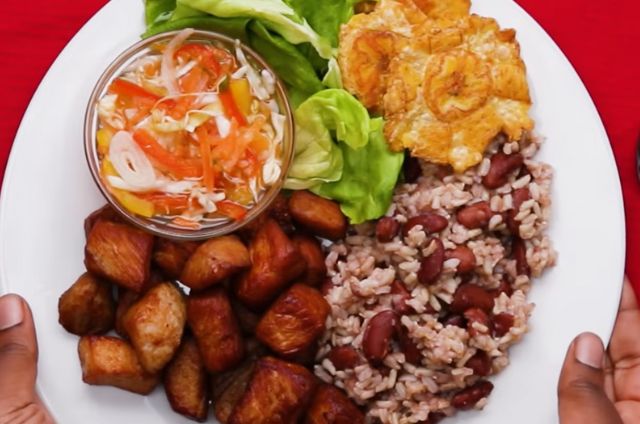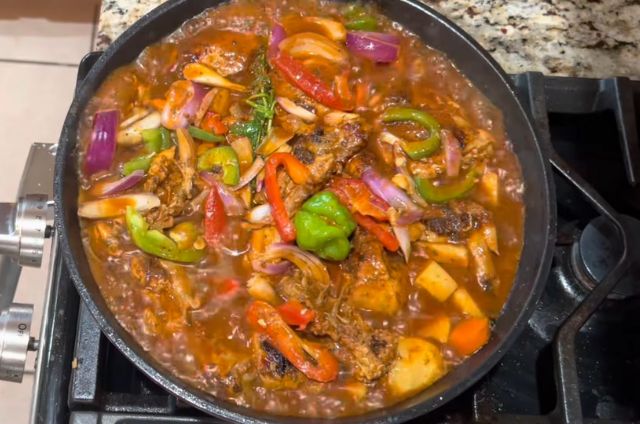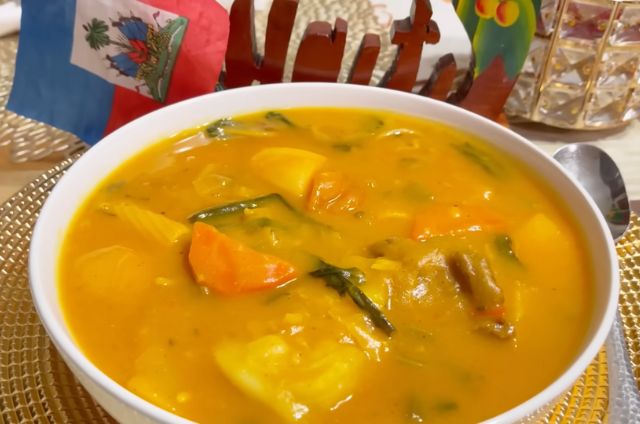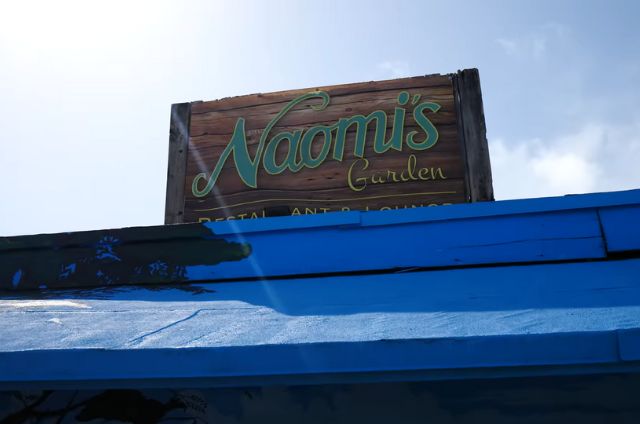Miami, known for its vibrant cultural mosaic, is home to a significant Haitian population, making it an ideal destination to explore Haitian cuisine.
This exploration leads us through Little Haiti, a neighborhood bustling with authentic Haitian food, culture, and history.
Through ages of exploration and interactions with local Haitians, this article unravels the culinary treasures of Miami’s Haitian community.

The Haitian presence in Miami began to grow in the 1970s, following political unrest in Haiti, significantly. Many Haitians fled to Miami due to its proximity and the promise of a better life.
Over time, they established a vibrant community, bringing their rich culture and culinary traditions. Today, Little Haiti is a hub of Haitian culture in the United States, offering a unique blend of food, art, and music.
Haitian cuisine is a robust fusion of flavors influenced by French, African, Spanish, and indigenous Taíno cultures. The food is known for its bold spices, with dishes that offer a delightful array of unique and inviting flavors.

One of the most celebrated Haitian dishes is Griot, consisting of marinated pork cubes that are deep-fried till crispy. It is typically served with pikliz, a spicy pickled vegetable medley that adds a refreshing crunch and a fiery kick to the dish.
Griot is not just food; it’s a cultural icon in Haitian cuisine, representing the rich history and resilience of the Haitian people.

Poulet en Sauce is another staple. It features slow-cooked chicken in a flavorful tomato-based sauce with bell peppers, garlic, and onions.
This dish is often accompanied by rice and beans, staple sides in Haitian cuisine that complement the savory stew perfectly.

Given Haiti’s extensive coastline, seafood is prominently featured in the cuisine. In Miami, Haitian restaurants serve up fresh snapper, conch, and lobster seasoned with Haitian spices and herbs that highlight the natural flavors of the seafood.

Fried plantains, or Bannann Peze, are a cornerstone of Haitian side dishes. Sliced plantains are fried, smashed flat, and fried again to achieve a crispy exterior with a soft, sweet interior.
They are the perfect complement to both the rich stews and grilled meats typical of Haitian meals, offering a delightful contrast in textures.

Traditionally consumed on New Year’s Day, this pumpkin soup is more than a dish; it’s a symbol of Haitian independence.
Laden with beef, vegetables, and pasta, and simmered in a savory pumpkin broth, Soup Joumou is celebrated for its rich flavors and its cultural significance, representing the triumph of the Haitian people.
Haitian restaurants in Miami are more than just eateries; they are community centers that preserve and promote Haitian culture.
These establishments often double as gathering spots where people can enjoy traditional Haitian music and art, fostering a sense of community and belonging among Miami’s Haitian population.
Despite the vibrancy of the Haitian community in Miami, there are challenges. Economic hardships and cultural integration issues are prevalent, but the community’s strong ties to their culinary traditions play a crucial role in maintaining their cultural identity.
Haitian restaurant owners and chefs in Miami are passionate about their heritage and strive to offer an authentic experience to both Haitians and non-Haitians alike. They are ambassadors of their culture, using food as a medium to educate and integrate with the broader Miami community.
Location: Little Haiti, Miami
Signature Dishes: Legume, Cabrit en Sauce
In the heart of Little Haiti, Chez Le Bebe is a humble establishment where the authenticity of the food takes center stage.
This eatery is famed for its Legume—a hearty vegetable stew enriched with meat and served over rice—which exemplifies the typical Haitian method of layering flavors and textures.
Another highlight is the Cabrit en Sauce, a goat stew that is both spicy and savory, simmered until the meat is fork-tender.
Chez Le Bebe offers a genuine slice of Haitian life, serving dishes deeply rooted in Haitian culture and cooked with a passion that reflects the island’s heritage.

Location: Liberty City, Miami
Signature Dishes: Fish in Creole Sauce, Djon Djon
Naomi’s Garden is a verdant oasis in Liberty City, where guests can dine amidst lush tropical plants and the rhythmic backdrop of Kompa music.
The restaurant is renowned for its Fish in Creole Sauce, a testament to the freshness of the local seafood and the Haitian skill in seasoning.
Another specialty, the Djon Djon rice, made with rare black mushrooms from Haiti, offers an earthy flavor unique to the region’s cuisine.
Naomi’s provides not just a meal but an enveloping cultural experience, reflecting Haitian culture’s warmth and community spirit.
Haitian cuisine is deeply woven into the fabric of the country’s culture and history. It is not only about nourishment but also about celebration, resilience, and the expression of identity.
Each dish has a story, often linked to historical events or seasonal celebrations, making the cuisine a vital part of Haiti’s cultural heritage.
In Miami, Haitian restaurants serve as cultural ambassadors, offering insights into the island’s vibrant traditions and the communal spirit of its people.
Discover Miami’s vibrant culture, stunning beaches, and pulsating nightlife in this ultimate travel guide.
For those eager to experience authentic Haitian cuisine, Miami offers an unparalleled culinary journey through its numerous Haitian restaurants.
Each dish tells a story of migration, survival, and cultural pride. Miami’s Little Haiti is a proof of the enduring spirit of the Haitian people and their significant contributions to the city’s cultural history.
This exploration into Haitian cuisine in Miami not only satisfies the palate but also enriches the soul, offering a deeper understanding and appreciation of Haitian culture and history.
Whether you are tasting Griot with pikliz for the first time or savoring the flavors of a well-prepared Poulet en Sauce, the experience is sure to leave a lasting impression.
Miami’s Haitian food scene provides a fascinating glimpse into the culinary traditions of Haiti, making it a must-visit destination for food lovers and cultural enthusiasts alike.
The rich flavors, combined with the warm hospitality of the Haitian community, ensure that every meal is not just food but an experience worth cherishing.
Counter
101 Countries • 1432 Cities